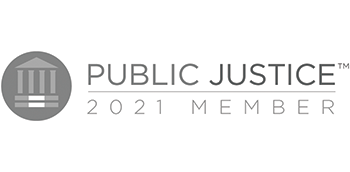Because most people rarely need an attorney, many don’t know how to choose one. These pointers can help.
Client Care
Find a law firm that seems to genuinely care about you. Do you feel like they are really listening to you? Does it feel like they have your interests at heart? Their focus should be on representing you based on your interests, not theirs. Are they responding quickly to your calls? Are you being treated with care and respect? If you start feeling like you’re just another “case in their system,” don’t sign a retainer agreement – look elsewhere. Care, comfort, and connection matter.
Trial Experience & Reputation
The quality of your lawyer has a big impact on the outcome of your case. Outcomes in a lawsuit are difficult to predict, but one thing is certain: the best settlements go to the lawyers who are prepared to take your case to trial.
When an insurance company or corporate defense attorney receives a claim, the very first thing they want to know is the name of the lawyer representing the plaintiff (the person filing the claim or lawsuit). If the lawyer has a reputation for going to trial and holding companies accountable, they will increase their “reserve” in the case in anticipation of having to make a bigger payout. In contrast, this will not occur if they see that the lawyer is a “speed and greed” lawyer, who makes a living settling a large volume of cases quickly.
Look for an attorney who has experience going to trial and has developed a reputation as a true litigator. People are often surprised to learn that many lawyers have little or no actual trial experience. Even though most cases settle out of court, you will be in a stronger bargaining position during settlement negotiations if the opposing lawyers know your lawyers have the track record to beat them at trial.
Negotiating Skills
Because most cases settle before going to trial, your settlement is often based on what your attorney negotiates on your behalf. For this reason, it’s important to find a lawyer with enough experience to understand the value of your case and the skills to negotiate a great settlement for you. Negotiation is a skill that can be developed with training and experience. Look for an attorney who has both.
The 3 Rs: Ratings, Reviews & Referrals
Another effective way to evaluate potential attorneys is to look at the ratings and reviews they are given both by clients and by peers in the legal community. Of course, reviews and ratings posted by a firm on their website are always going to be positive; however, you can sometimes learn about specific qualities the lawyer has based on the comments being made.
Ask if the firm will provide you with the names of past clients you can contact as references. Obviously, you will not be connected with unhappy clients, but you can ask specific questions about the experience of working with the firm and how they treat clients, or whatever else might be important to you.
Peer reviews can be a good source of information as well. For example, Martindale-Hubbell is a leading international resource that evaluates lawyers’ reputations among the people who actually work with and against them—other lawyers. The best rating is AV—for lawyers with the highest levels of professional and ethical standards according to their peers.
Bigger Doesn’t Mean Better
When choosing a law firm, bigger does not mean better. Many larger firms need to run through hundreds or thousands of cases at a time just to pay their big overhead and have large bureaucracies that are difficult for their clients to navigate. Cases may be processed in batches, so the unique aspects of each client’s case are lost in the shuffle.
Strategic Partners
An experienced law firm often partners with other law firms when it’s in the client’s best interest, particularly in complex, high-value cases. For example, sometimes attorneys join forces to share their research, expertise, and other resources to build the best possible case for you. In other cases, depending on where you live, it’s helpful to involve local lawyers to gain a local perspective. But you don’t need to find a lawyer in the place where you think you’ll file your lawsuit; a good firm with national experience and strategic partners can manage your case wherever it’s filed.
Contingency Fee
Look for a law firm that works on a contingency fee basis. What this means is they assume all the financial risk in your case, and you don’t pay any legal fees or expenses unless the firm recovers compensation for you (that’s right, in the unlikely event you don’t get a recovery in your case, you don’t pay a thing). Once you receive your recovery, the lawyer deducts your case’s expenses and takes a percentage of the recovery as compensation for the services provided.














